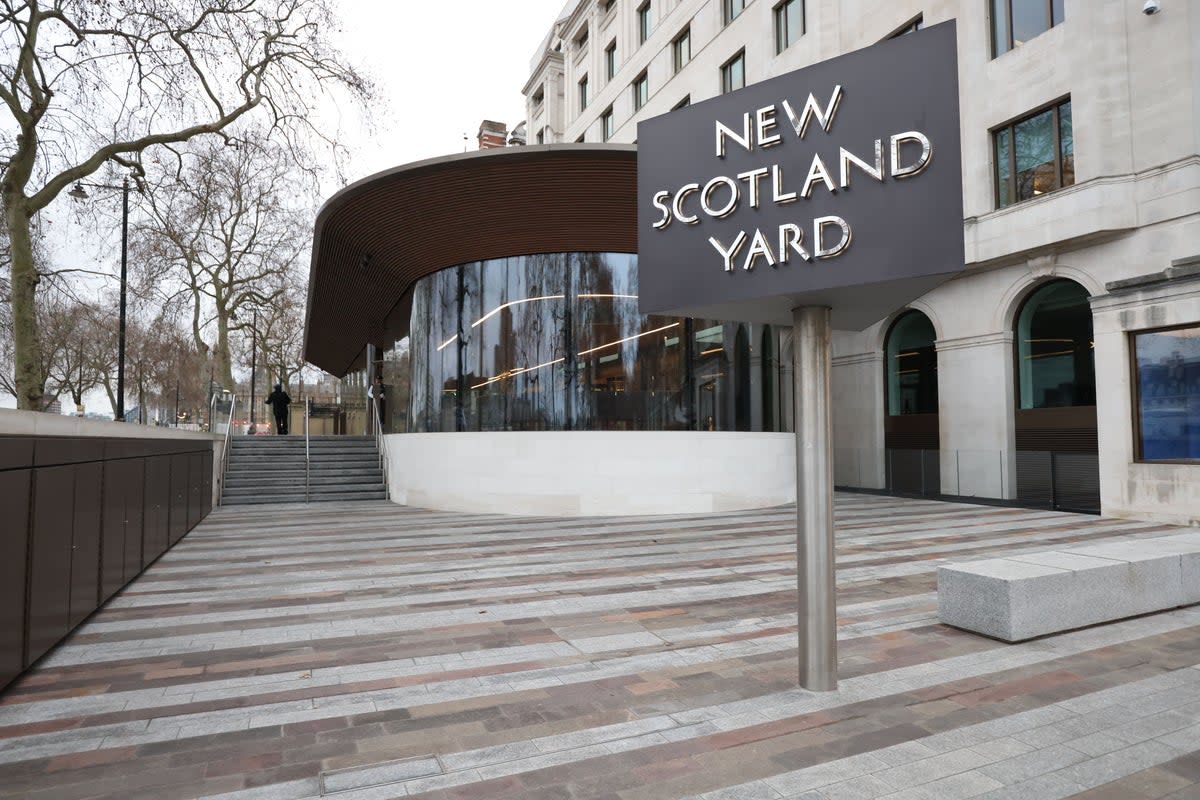Metropolitan Police placed under special measures by watchdog after series of scandals

Britain’s biggest police force is to be placed under special measures after a series of scandals.
The Metropolitan Police will be under increased scrutiny as part of a monitoring process instigated by HM Inspectorate of Constabulary (HMIC) “to help it make improvements”.
The full report detailing the reasons behind the rare step has not been published, but a letter from inspector of constabulary Matt Parr to acting commissioner Sir Stephen House reportedly cited “several examples of high profile incidents” that raised concerns about performance and damaged public trust.
The letter directly mentions the murder of Sarah Everard, the inquiry into the unsolved murder of private detective Daniel Morgan and the stop and search of Black Olympic athlete Bianca Williams.
The killing of Zara Aleena, a 35-year-old court administrator who was attacked while walking home from a night out in Ilford, has drawn fresh focus to the protection of women this week.
London mayor Sadiq Khan said the decision “laid bare the substantial performance failings by the force”.
“HMIC has raised very serious concerns about the Met’s performance and I welcome the additional scrutiny and support that these measures will now bring,” he added.
“A series of appalling scandals have not only exposed deep cultural problems but have damaged the confidence of Londoners in the capital’s police service.
“This will be a crucial first step for the next commissioner to start rebuilding trust and credibility with our communities. I will work with HMIC and will hold the Met to account in delivering the police reforms and step change in policing performance and culture that all our communities deserve.”
Scotland Yard’s slide into special measures comes as officers await the appointment of a new commissioner, following Dame Cressida Dick’s shock resignation earlier this year.
Only three other forces in England and Wales are in the same category of monitoring – Greater Manchester Police, Cleveland Police and Gloucestershire Constabulary.
Official guidance says the process is used “if a force is not responding to a cause of concern, or if it is not succeeding in managing, mitigating or eradicating the cause of concern”.
Scotland Yard will be ordered to develop an “improvement plan” to address the issues identified by the inspectorate and may receive support from the National Police Chiefs’ Council and College of Policing.
A “policing performance oversight group” will then consider the process made to address the failings identified. The Metropolitan Police will not be released from the process until HMIC is satisfied that sufficient and sustained improvement has been made.
A spokesperson for HMIC said: “We can confirm that we are now monitoring the Metropolitan Police Service through our Engage process, which provides additional scrutiny and support to help it make improvements.”
A member of the Reclaim These Streets group that won a court battle against Scotland Yard over its refusal to facilitate a vigil for Ms Everard said: “It is amazing it took HMIC this long.”
Jamie Klingler told The Independent: “They have had zero accountability in the last fifteen months, from being forced to apologise to [murdered sisters’ mother] Mina Smallman, to refusing to accept the High Court judgment and waste taxpayers’ money on the hopeless appeals in our case, to refusing to admit that the activity around Stephen Port was because of systemic homophobia.
“Nothing has been demonstrated in terms of training, whistleblowing or anything else to show that the Met are interested in the deep reform needed.”
Revelations over sexist and racist behaviour at Charing Cross police station led to the resignation of Dame Cressida Dick in February, amid a row over the scale of changes demanded by Mr Khan.
Her successor has not yet been appointed by Priti Patel, who has instigated inquiries into the circumstances of Dame Cressida’s resignation, the murder of Ms Everard and wider issues – including vetting – in policing.
Last Thursday, the Independent Office for Police Conduct confirmed it was reopening its probe into Scotland Yard’s handling of serial killer Stephen Port who targeted gay men.
Last year, an inquest found that failings by officers over the death of Port’s first victim probably contributed to the deaths of three others, because he was not caught.
Responding to Tuesday’s announcement, the home secretary said: “The public put their trust in the police and rightly expect the country’s largest force to protect them effectively and carry out their duties to the highest professional standards.”
She added: “I expect the police to get the basics right. It is clear the Metropolitan Police Service is falling short of these expectations which is why I support the action that HMIC has taken today to highlight their failings – and I expect the Met and the London mayor to take immediate action to begin addressing them.”
Ms Patel said the process of recruiting a new commissioner was “well underway” and that the successful candidate must demonstrate improvements and regain public trust.
Caroline Pidgeon, a Liberal Democrat member of the London Assembly’s police and crime committee, said the next commissioner “must command cross-party support” following concerns over politicisation of the appointment amid tussling between the Conservative government and Labour mayor.
“This would at least provide some reassurance to the public that change will be delivered and no party political games are being played,” she added.
A spokesperson for the Metropolitan Police said: “We recognise the cumulative impact of events and problems that the Met is dealing with. We understand the impact this has had on communities and we share their disappointment.
“We are determined to be a police service Londoners can be proud of. We are talking to the inspectorate about next steps.”


